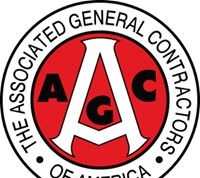Self-storage facilities are fast becoming one of the most viable options for Kiwi Millennials to store their overflow of stuff as they transition from one place to another.
Storage units are an excellent solution for people looking to save some space in their homes by downsizing their items or store seasonal items.
Securing your belongings inside a self-storage facility is very helpful if you are running out of space in your house, moving homes, or just decluttering.
The following tips will help you choose a secure facility that you can trust to keep the contents of your storage unit safe.
Think about an insurance-backed storage company
An insurance-backed storage facility can be a great choice for storing your precious property while you’re far away.
A commercial storage facility should be insured against fire, flood and theft. Make sure the insurance policy covers any damage to your property in its care.
Alternatively, you can also look into storage unit insurance. The cost of premiums will depend on what level of coverage you want and how much it costs to insure the items in your storage unit.
Storage Unit Insurance is a must have when storing valuable items such as paintings, furniture, clothing and books because you never know when something might happen to them while they’re at the facility.
This type of insurance provides protection against losses including theft, fire or natural disasters without having to place an item out-of-service (e.g., remove from the building). It also covers any damage caused by water infiltration.
Choose a secure facility
When deciding where to store your items, make sure you choose a secure facility with a proven track record of being reliable. When it comes to storage facilities, security is of utmost priority. Discuss these measures or ask questions.
But, how do you know if a storage unit is secure? The first thing you should look at is the location. Do they have surveillance cameras that record video 24 hours a day? Are there any fences or locks on gates outside of the facility?
And what about inside of the facility – are there security guards present during all hours of operation and access controlled by card key or code only?
Check to see if the facility is clean and well maintained
When you need storage space for personal effects, office equipment or commercial goods, look for a facility that’s roomy and well kept.
A super-clean facility is a good indicator of the pride the owners take in operating a clean, safe place for people to store their belongings.
Be sure to review the facility’s records. If it’s run well, you’ll find a perfect record of regular maintenance, and any issues that might have been reported should have been addressed.
Self-storage facilities aren’t all created equal, so it’s smart to research the options and think about going with a well-maintained company like SafeStore Auckland.
Consider your location when choosing a storage unit
Do you need a storage unit? Where are you located? This is an important question to answer before you make any decisions.
Ask yourself: will I be driving or moving on public transportation to my unit’s location? If so, then the convenience of your location may outweigh cost considerations.
However, if you plan to drive and can afford more expensive units in a better neighborhood, it may be worth it for you to do so. Remember that the most important thing when choosing a storage facility is making sure there are no hidden fees!
Choose a unit with climate control
If you’re storing delicate items like books or electronics, you might consider a storage unit with climate control to keep your valuables at a consistent temperature. Temperature and humidity control will help you protect your belongings and extend their lifespan.
Your belongings are always safer in a climate-controlled unit, which stays within a certain temperature range to preserve your belongings for many years.
Check reviews when choosing a storage unit
When you are looking for a storage unit, it is important to do your research. There are many factors that go into choosing the right one for you.
For example, how much space will be enough? How much security should I expect? What amenities can I expect?
These are all questions that need to be considered when making this decision and checking reviews of different companies can help you make an informed choice about which company to choose.
The first step is finding reputable businesses in your area by searching online. From there, read customer reviews from sites like Yelp or Google Reviews to get more insight into what people say about their experience with each business before selecting one.
This way, you’ll know what kind of service and facilities they offer before even stepping
Prepare an inventory of items to be stored off-site
Just because you put items away does not mean they will stay there. Make sure you take photos or inventory the items being stored off-site. It could save you from having to repay your storage facility for lost or damaged goods, as well as make it easier to recover stolen goods or items.
A good way to prepare an inventory is to write down what you expect to store on a piece of paper.
Items that will be stored in the unit should be either neatly organized or packed in boxes (give preference to box sets, they’re cheaper).
The inventory of items should include the serial number, Dimensions, and Model number of your appliances as well as their status. This way, when you come to pick your things, you can check items off your list and know if anything is missing or tampered with.
Conclusion
Everyone is looking for new ways to streamline their lives without sacrificing comfort. As the self-storage market continues to grow, renters are looking for the best value and user experience possible.
Some of the most important factors to consider when deciding on a storage unit are size, security and location.
Also take into account how often you’ll need access to your stored items, as that will affect which type of rental agreement is best for you.
Once you find a suitable place for your belongings, be sure to get written confirmation about what can happen if things go wrong with the contract before signing any paperwork!













